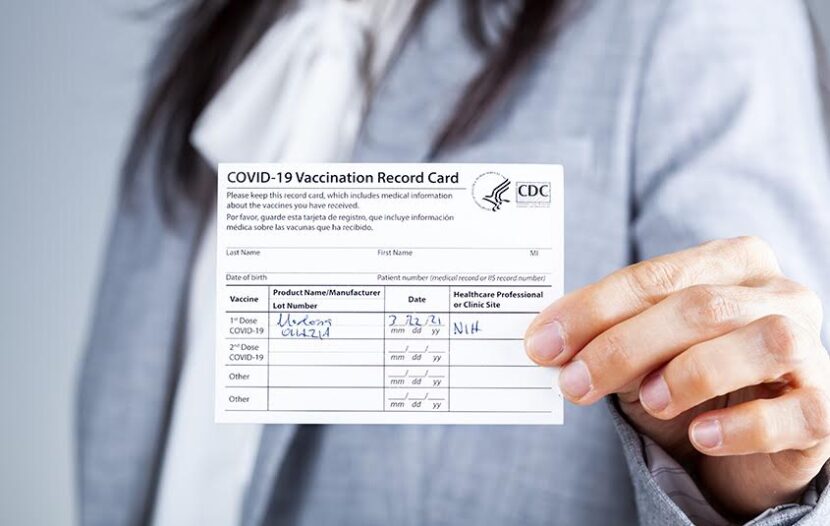TORONTO — There’s finally hope for the Canadian travel industry after more than a year of lockdowns and border closures. Canada’s controversial 3-day hotel quarantine will be gradually lifted starting next month, a monumental first step made by the federal government towards a reopening of international travel.
And though the relaxed measure will apply to only returning Canadians, permanent residents and other exempt travellers entering Canada at first, it’s hopefully a sign of things to come for an industry that has been devastated by the COVID-19 pandemic.
With border restrictions set to ease for some, proof of vaccination will play a key role in determining who will get to bypass the full 14-day quarantine. Intergovernmental Affairs Minister Dominic LeBlanc said earlier this week that vaccine passports may not be ready by the time the hotel quarantine starts to lift, and that border agents will instead be given temporary guidance on proof of vaccination. But an official vaccine passport, like the EU’s Digital COVID Certificate, which was just given the green light this week, is the end goal to allow for the safe resumption of international travel, and is on the agenda at this week’s G7 Summit in the U.K.
There’s no question that the travel community is widely in favour of proof of vaccination at international borders, but could we see the same on a local level, at museums, attractions and other tourism businesses in Canada? Would it make sense to have a system in place, ahead of travel restrictions easing and in preparation of an influx of tourists?
A new Ipsos survey found that in Canada, the majority of respondents strongly favour vaccine passports for travel and large events, but not so much for day-to-day activities. Nearly eight in 10 (78%) agree that all travellers entering Canada should be required to have a vaccine passport, with 72% saying they would be effective in making travel and large events safe. Two in three Canadians (65%) agree that public venues such as concert halls and stadiums should also require proof of vaccination. But when it comes down to the role of vaccine passports in more everyday uses like at shops and restaurants, just under half (47%) agree, while nearly as many (45%) disagree.
We asked Beth Potter, President and CEO of TIAC (tourism Industry Association of Canada) what she thinks about proof of vaccination for tourism businesses, here’s what she had to say:
In your opinion, is proof of vaccination essential for Canada’s travel & tourism companies to ensure the safe reopening of the tourism industry?
“We are calling for guidance from all levels of government on what exactly this looks like in situations across the country. We need to start moving toward a phased and safe reopening plan based on science. We don’t believe that this burden should be placed on businesses.
“When restrictions are lifted and travel resumes, tourism businesses are prepared to offer experiences and deliver services following all the necessary health and safety protocols. It’s important that Canadians feel confident to get their vaccine, travel domestically, and that we look to lead a change in international narrative to showcase Canada as a safe destination for travellers.”
With TIAC asking Canadians to Take the Pledge and travel within Canada this year, and with the launch of the new #OpenTheBorder campaign, travel businesses across Canada will need to plan and prepare for an influx of tourists. Will these plans include a uniform way for businesses to require proof of vaccination?
“TIAC encourages Canadians to take the pledge and to travel in Canada first to support our tourism economy. The Canada-U.S. border has been closed for over a year, and last week, the federal government’s Expert Advisory Panel on COVID-19 testing and screening released a report stating that there needs to be changes made to the border policy to reflect the progress we’ve made in vaccinations and fighting the pandemic. Tourism operators and businesses need time to plan and prepare; hire and rehire staff, market, and retool. Many sectors citing 4-6 weeks lead time to prepare – it’s crucial that we receive transparent guidance from government based on metrics and milestones so that we can prepare.
Tourism businesses and employees across the country have worked hard to ensure all products and experiences meet the proper health and hygiene regulations – we will be ready.
Studies show that the majority of Canadians are in favour of proof of vaccination for travel, but not so much for everyday activities. Has TIAC seen pushback for this as well?
TIAC believes that proof of vaccination should be essential for international travel only. Once you are in Canada, you should be able to travel freely.
TIAC is advocating for one system for the whole of Canada based on nationwide key metrics and measurements, to ensure uniformity across the country. This means that proof of vaccination or entry requirements should look the same for all of Canada, at each point of entry, and not different in each region or province/territory, which would provide much confusion for the traveller.
A crucial part of recovery will be consumer confidence. TIAC is looking to lead the way in ‘changing the current narrative’ on behalf of the sector. We need federal leaders to support positive language and messaging around the tourism industry. Travelers, both domestically and internationally, must feel confident in our proof of vaccine and testing requirements and procedures.

